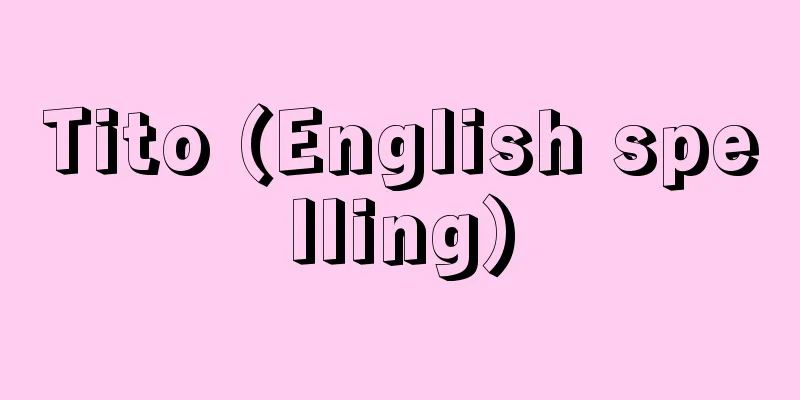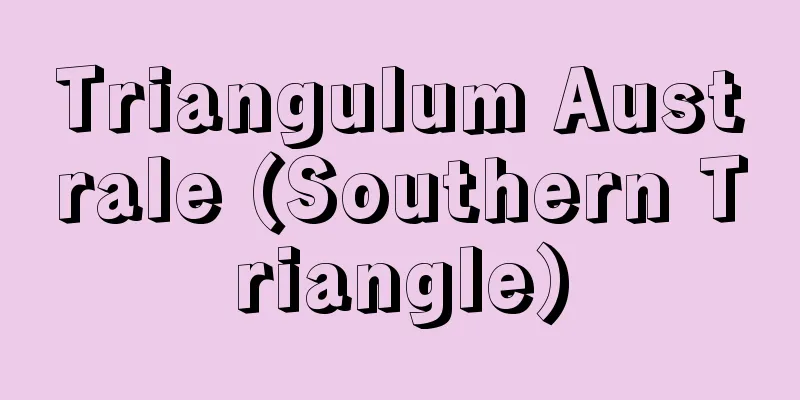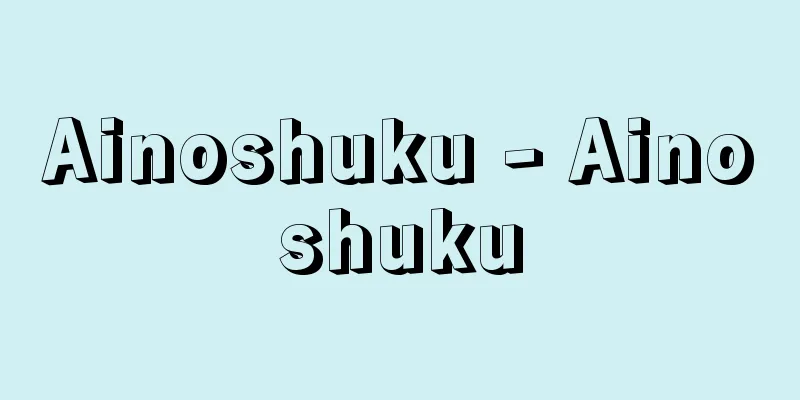Free goods - jiyuzai

|
〘 noun 〙 A good that satisfies human desires, but exists in large quantities throughout society as a whole, and does not require the payment of a price to obtain it. Examples include the sun, which cannot be possessed or disposed of, and air and seawater, which are abundant and freely available. Free goods. Free-spirited goods. ⇔ Economic goods. [National Encyclopedia New Word Dictionary (1934)] Source: The Selected Edition of the Japanese Language Dictionary About the Selected Edition of the Japanese Language Dictionary Information |
|
〘名〙 人間の欲望を満足させるが、社会全体としての存在量が多く、それを獲得するのに対価の支払いを要しない財。占有、処分が不可能な太陽、豊富で自由に獲得できる空気、海水などがこれにあたる。自由財貨。自由的財貨。⇔経済財。〔国民百科新語辞典(1934)〕
出典 精選版 日本国語大辞典精選版 日本国語大辞典について 情報 |
<<: Felony and misdemeanor - felony and misdemeanor
Recommend
Otsu [city] - Otsu
A city in the southwest of Shiga Prefecture. It wa...
Disappearance - disappearance
〘noun〙 Something whose whereabouts are unknown. Al...
Boilly, LL (English spelling) BoillyLL
…In Spain at the same time, Goya appeared, who pr...
Gas sand - Gasusuna
...In recent years, various self-hardening molds ...
De Beers Consolidated Mines Ltd.
The world's largest diamond mining company, it...
Itoyo (English spelling) three spined stickleback
A general term for fish belonging to the order St...
Epidendrum Marie - Epidendrum Marie
…It is widely distributed in Latin American count...
Silver-bellied eel - Ginbara eel
…In any case, eels that have grown sufficiently i...
Antep - Antep
...Population: 716,000 (1994). Formerly called Ay...
Annular caries - caries
…Circular caries (also called ring-shaped caries)...
Gastrointestinal Hormones - Icho Hormone
...(6) Gastrointestinal Hormones are found scatte...
Pulse - Pulse (English spelling)
A phenomenon in which blood flow, voltage, etc. c...
Hypochoeris crepidioides (English spelling) Hypochoeriscrepidioides
… [Morita Tatsuyoshi]. … *Some of the terminology...
Killarney - Killarney (English spelling)
A city in County Kerry in the southwest of the Re...
ITAR-TASS
A Russian news agency. It was renamed from the for...









